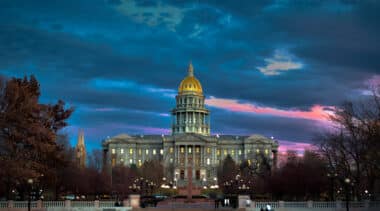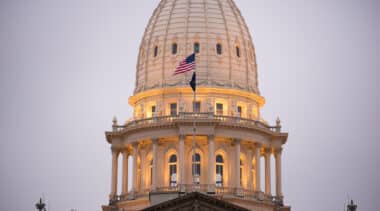Latest
-
Florida zoning reforms are a flawed but promising step
While far from ideal, the Live Local Act protects developers from mandatory municipal inclusionary zoning.
-
Surface Transportation News: Trends in infrastructure finance and public-private partnerships
Plus: Mileage-based user fees proposal, California's locomotive emissions regulation misfire, and more.
-
Annual Privatization Report 2024 — Transportation Finance
This report reviews 2023 developments in infrastructure investment, focusing on transportation infrastructure.
-
Annual Privatization Report 2024 — Aviation
Reviewing developments in the United States and worldwide regarding private-sector participation in airports and air traffic control.
-
Annual Privatization Report 2024 — Surface Transportation
Of the top 10 worldwide surface transportation public-private partnerships that reached financial close in 2023, seven used availability payments.
-
Alario v. Knudsen: Montana’s TikTok ban is unconstitutional
Montana Senate Bill 419 is an unconstitutional ban on free expression that triggers the most exacting scrutiny under the First Amendment.
-
Colorado’s rejection of Senate Bill 24-158 is good for privacy, free speech
For now, the defeat of Colorado Senate Bill 24-158 was a win for consumers, privacy and free speech.
-
The DOJ’s Apple antitrust suit doesn’t add up
Practices labeled ‘exclusionary’ by the DOJ created the iPhone ecosystem many consumers prefer.
-
Examining the 2024 state marijuana legalization proposals
Right now, 24 states have legalized the recreational use of marijuana by adults—a rapid shift after Colorado and Washington first did so in 2012.
-
Shifting cybersecurity towards a proactive and cooperative paradigm
Proactive measures that foster collective resilience could be more effective than the current compliance-focused approach.
-
Michigan bills would help parents give kids reasonable independence
The Michigan bills would establish clear allowances for kids traveling to or from school, playing outdoors, and remaining at home alone for reasonable periods.
-
Arkansas K-12 education finance series: How Arkansas schools are funded
While education funding in every state is complex, Arkansas enjoys a relatively streamlined and straightforward funding system.
-
Funding Education Opportunity: To combat learning loss, schools need to use time more wisely
Plus: School choice legislation news from Georgia, Louisiana, Nebraska, and more.
-
EPA should deny a Clean Air Act waiver for California’s locomotive emissions regulation
The California Air Resource Board’s In-Use Locomotive Regulation mandates unproven technology and would impose large compliance costs.
-
Recriminalizing drug possession in Oregon is a rewind to failed policy
A punitive approach to drug use has not succeeded in the last 100 years, and it won’t succeed in the next 100.
-
Louisiana bill would enact a legal cannabis market with high barriers to entry
Louisiana's proposed marijuana legalization bill would limit opportunities for entrepreneurs and limit legal options for consumers.
-
Pension Reform News: Delaying needed reforms costs taxpayers
Plus: Missouri proposal would unwisely fund public pensions through fines and fees.
-
Fentanyl in e-cigarettes: The making of a myth
There is no evidence of a nicotine e-cigarette testing positive for fentanyl.

















